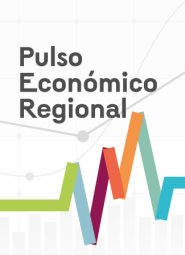Geographic Isolation and Learning in Rural Schools
The series Working Papers on Economics is published by the Office for Economic Studies at the Banco de la República (Central Bank of Colombia). It contributes to the dissemination and promotion of the work by researchers from the institution. This series is indexed at Research Papers in Economics (RePEc).
On multiple occasions, these works have been the result of collaborative work with individuals from other national or international institutions. The works published are provisional, and their authors are fully responsible for the opinions expressed in them, as well as for possible mistakes. The opinions expressed herein are those of the authors and do not necessarily reflect the views of Banco de la República or its Board of Directors.
The series Borradores de Economía (Working Papers on Economics) contributes to the dissemination and promotion of the work by researchers from the institution. On multiple occasions, these works have been the result of collaborative work with individuals from other national or international institutions. This series is indexed at Research Papers in Economics (RePEc). The opinions contained in this document are the sole responsibility of the author and do not commit Banco de la República or its Board of Directors.
Abstract
Rural schools are usually behind in terms of learning, and part of this could be related to geographical isolation. We explore this hypothesis, assessing the effect of distance between rural schools and local governments on learning in Colombia. We use spatial discontinuous regression models based on detailed administrative records from the education system and granular geographic information. Results indicate that distance to towns and Secretary of Education has significant negative effects on students’ standardized test scores. We evaluated alternative mechanisms, finding that the effect of distance is partly explained by differences in critical educational inputs, such as teachers’ education attainment and contract stability. Finally, we assess the mediating role of a program providing monetary incentives to teachers and principals in remote areas.































































